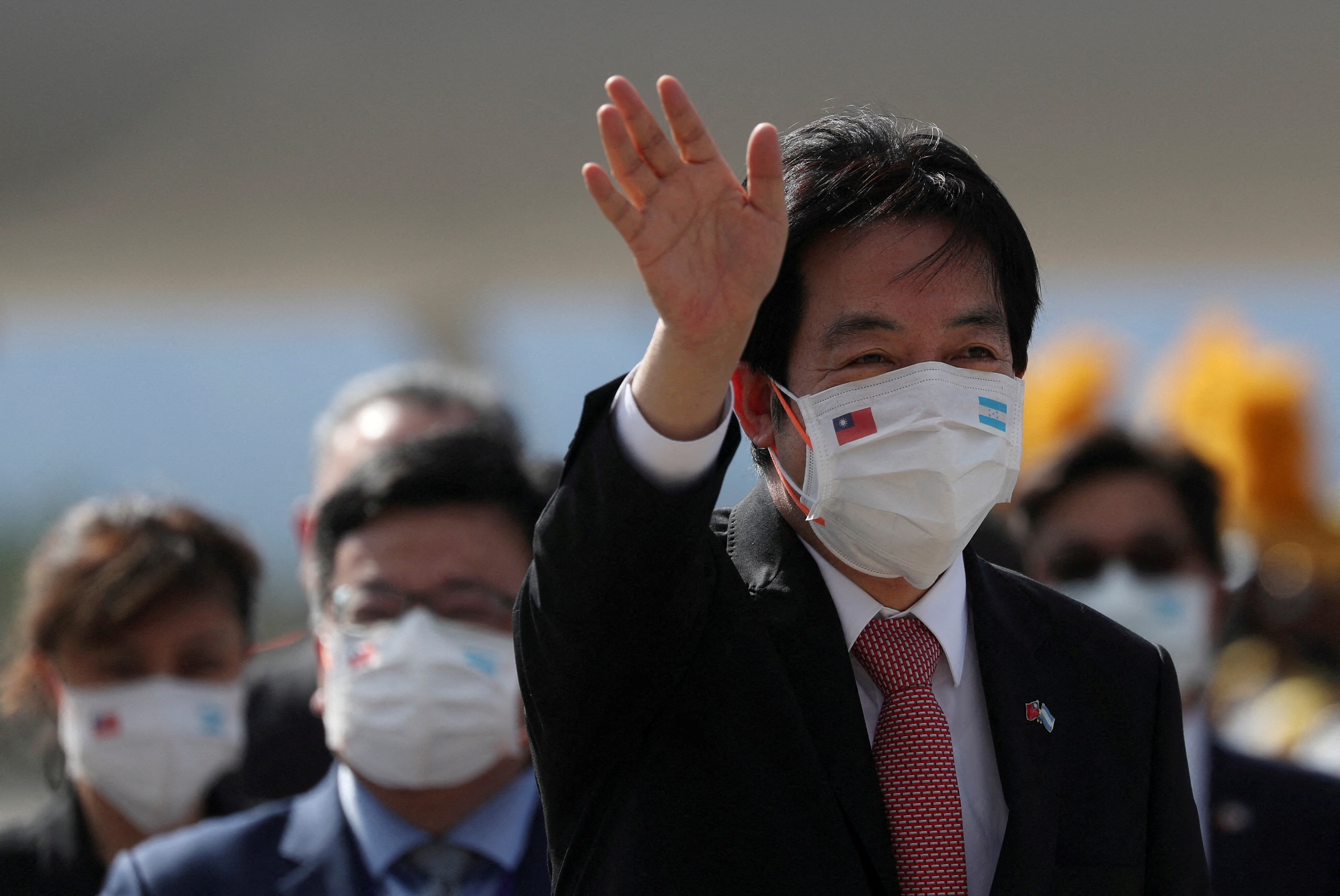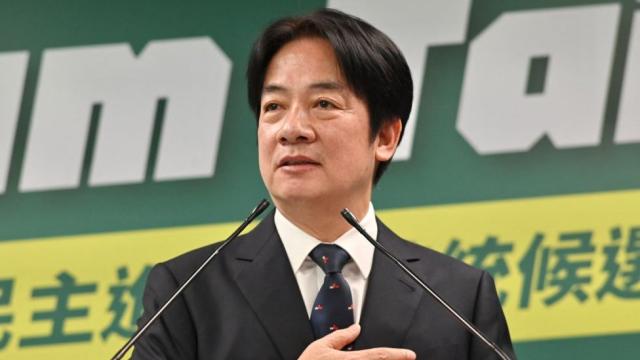Washington — Washington’s relationship with Beijing will face its most serious test since the two presidents met in November, as the U.S. seeks to keep the Taiwan Straits calm when Taiwanese voters pick a new president this weekend.
The peace and stability of the 110-mile-wide (177-kilometer-wide) waterway connecting China’s mainland to the self-governing island are at stake. Any armed war might pit Washington against China, disrupting the global economy.
China thinks the front-runner’s victory in Saturday’s election will be a step toward independence and has warned Taiwanese voters that they may have to choose between peace and war.
According to officials and analysts, regardless of who wins the presidential election, Washington is willing to collaborate with both Taipei and Beijing to avoid miscalculations and escalation of tensions.
A senior White House official stated that the United States will maintain open lines of communication with China and close touch with Taiwan to “reinforce both our support for Taiwan’s democratic processes and also our strong commitment to peace, stability, and the status quo.” The official talked with reporters on Thursday under the condition of anonymity to outline the plans.
The US Relationship With China Faces A Test As Taiwan Elects A New Leader
President Joe Biden intends to send an unofficial group of former senior officials to the island soon after the election. The United States has no diplomatic relations with Taiwan, and sending an official delegation would irritate Beijing, which considers the island Chinese territory.
Anticipating a “period of higher tensions,” the person stated that the U.S. is preparing for several replies from Beijing based on the election results, which may range from no response to military action.
On Saturday, the island’s 23 million inhabitants will elect a new president to succeed Tsai Ing-wen, who has served two terms. The election has received a lot of attention since Beijing is opposed to front-runner Lai Ching-te, the candidate from the ruling Democratic Progressive Party, which is known for its pro-independence stances. This has generated concerns that a Lai victory may prompt a military response from the mainland.
Beijing has sworn to unify Taiwan, even if it means using force. Any military action may involve the United States, which supports Taiwan with military hardware and technology under a security treaty.
While not taking sides on Taiwan’s sovereignty, Washington opposes any unilateral alteration in the status quo by either side. It has not indicated an official preference for any candidate.
When Biden met with Chinese President Xi Jinping in California in November, he emphasized the significance of peace and stability in the Taiwan Strait. Xi urged Biden to support China’s peaceful reunification with the island, telling him that “the Taiwan question remains the most important and sensitive issue in China-US relations.”
The US Relationship With China Faces A Test As Taiwan Elects A New Leader
Politicians and observers say that no matter who wins Saturday’s election, Washington will work with the new Taiwanese government to enhance ties and stop Beijing’s military aggression.
“The United States will exchange notes with Taiwan to maintain stability and ensure Taiwan’s future resilience,” said Bonnie Glaser, managing director of the German Marshall Fund’s Indo-Pacific program.
“Regardless of who wins, the American people will stand with the people of Taiwan and the vibrant, beautiful democracy of Taiwan,” Illinois Rep. Raja Krishnamoorthi said Wednesday during a Politico conversation. “And that’s on a bipartisan basis.” He is the top Democrat on a House select committee looking into strategic competition between the United States and the Chinese Communist Party.
Republican Representative Andy Barr of Kentucky stated during the same conversation that the United States and all of Taiwan’s major parties believe in deterrence. “We will work with whoever wins this election to reestablish and strengthen that deterrence,” he said.
The overwhelming support among Taiwanese for retaining the status quo indicates that U.S. policy will remain the same regardless of who wins the election, according to Scott Kennedy, senior adviser and trustee chair in Chinese business and economics at the Center for Strategic and International Studies.
“No one wants to provoke a war, and the current situation is minimally acceptable to almost everyone, whether in Taiwan, mainland China, or the United States,” he said.
According to Rorry Daniels, managing director of the Asia Society Policy Institute in New York, all of Taiwan’s presidential hopefuls now view a strong connection with the United States as a powerful deterrent to Beijing’s violent takeover of the island.
According to Daniels of the Asia Society Policy Institute, the challenge for Taipei and Washington would be handling Beijing’s fear that Taiwan would be “creeping into independence,” according to Daniels of the Asia Society Policy Institute.
The US Relationship With China Faces A Test As Taiwan Elects A New Leader
Lai is closely followed by the opposing Kuomintang party’s nominee, Hou Yu-ih. Beijing is accused of conducting an influence operation in support of Hou, whose party considers Taiwan to be part of China, albeit not necessarily under Beijing’s control. However, many believe a Kuomintang victory would stay the same U.S. policy because popular opinion on the island overwhelmingly supports the present quo.
If Hou is elected, Washington, which has a history of working with the Kuomintang, will be prepared to engage with him to continue strengthening US-Taiwan relations, and any easing in cross-strait tensions that results from his election could allow the U.S. to focus on other issues, according to Brian Hart, a fellow of the China Power Project at the Center for Strategic and International Studies.
A warming cross-strait relationship could complicate US-China relations. “There will be more to coordinate,” Daniels explained. But, as Beijing is likely to put pressure on a Kuomintang government to proceed toward reunification, she said that Washington may assist Hou in managing that pressure.
If elected, the third candidate, Ko Wen-je of the newly formed Taiwan People’s Party, might pose Washington’s most serious challenge. His party has yet to be tested and establish a relationship with Washington, but experts note that Ko has expressed an interest in collaborating with the United States.
“The Biden administration has gone out of its way to have no preference,” he remarked. “There is an opportunity regardless of who wins. The United States is truly not attempting to weigh in on this.”
“From the U.S. perspective, what we want Taiwan to do at a higher degree is to invest in its defense, to deter China’s aggression,” he said.
SOURCE – (AP)











